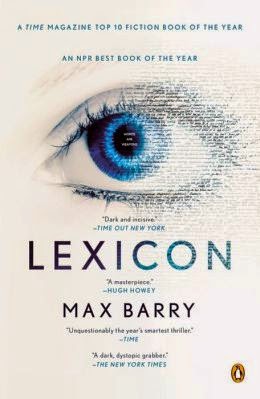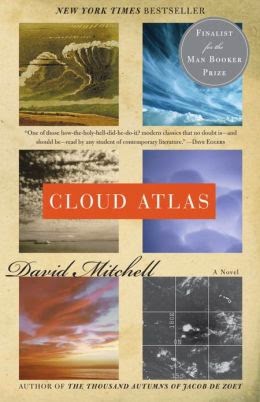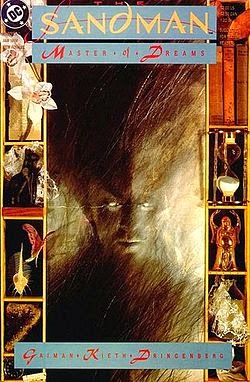Kate Quinn is a native of southern California. She attended Boston University, where she earned a Bachelor's and Master's degree in Classical Voice. A lifelong history buff, she first got hooked on ancient Rome while watching
I, Claudius at the age of seven. She wrote her first book during her freshman year

in college, retreating from a Boston winter into ancient Rome, and it was later published as
Mistress of Rome. A prequel followed, titled
Daughters of Rome, and then a sequel,
Empress of the Seven Hills--written while her husband was deployed to the Middle East.
Quinn made the jump from ancient Rome to Renaissance Italy for her fourth and fifth novels,
The Serpent and the Pearl and
The Lion and the Rose, detailing the early years of the Borgia clan. She also has succumbed to the blogging bug, and keeps a blog filled with trivia, pet peeves, and interesting facts about historical fiction. She and her husband now live in Maryland with a small black dog named
Caesar, and her interests include opera, action movies, cooking, and the Boston Red Sox.
Recently I asked Quinn about what she was reading. Her reply:
Some of my favorite books of the year so far . . . and as a writer of historical fiction, it's no surprise that HF is a big part of this list.
The Red Lily Crown, by Elizabeth Loupas. I read an ARC of this to see about giving it a cover quote, and I was absolutely delighted to do so. I'm a fan  of Loupas's anyway (her The Second Duchess and The Flower Reader are superb) and Red Lily Crown might be my favorite yet: a tough-as-nails street urchin in Renaissance Florence who ends up serving a mad-as-a-hatter Duke obsessed with alchemical experiments. She gets a lot more than she bargained for, and a front-row seat to the world of Medici madness, murder, and blood-lust. A subplot of poison and addiction gives everything the sheen of a dark fairy tale, the kind where the fair maiden might just get eaten instead of rescued.
of Loupas's anyway (her The Second Duchess and The Flower Reader are superb) and Red Lily Crown might be my favorite yet: a tough-as-nails street urchin in Renaissance Florence who ends up serving a mad-as-a-hatter Duke obsessed with alchemical experiments. She gets a lot more than she bargained for, and a front-row seat to the world of Medici madness, murder, and blood-lust. A subplot of poison and addiction gives everything the sheen of a dark fairy tale, the kind where the fair maiden might just get eaten instead of rescued.
Daughter of the Gods, by Stephanie Thornton. Ancient Egypt this time! Thornton's books are terrific if you're tired of all these wafty princesses and moony queens who inhabit  historical fiction. The heroine here is Hatshepsut; an unashamedly ambitious badass who took Egypt's double crown for herself and ruled as Pharoah in her own right rather than be content with a role as First Wife. Her adventures are huge good fun.
historical fiction. The heroine here is Hatshepsut; an unashamedly ambitious badass who took Egypt's double crown for herself and ruled as Pharoah in her own right rather than be content with a role as First Wife. Her adventures are huge good fun.
Prince of Shadows, by Rachel Caine. I know nothing about Caine except that she has a YA vampire series, so this book was an expected shock of deliciousness: Romeo and Juliet retold with a surprising twist. The hero and heroine here are Benvolio (Romeo's steady best friend) and Rosaline (Romeo's first love, ditched for Juliet). This pair is smarter, older, and far more savvy than their more famous counterparts, and they struggle to stop the inevitable - all the while feeling like the "curse on both their houses" may be a literal catalyst for all this disaster, and not just a  poetic conceit. And the story is far more firmly set in the realities of Renaissance Verona than Shakespeare's play, which basically used the Italian setting as short-hand for "not-England."
poetic conceit. And the story is far more firmly set in the realities of Renaissance Verona than Shakespeare's play, which basically used the Italian setting as short-hand for "not-England."
Odin's Wolves, by Giles Kristian. I found Kristian's Viking series after going into serious withdrawal from Bernard Cornwell's Saxon Stories, and it doesn't disappoint. This story of a boy named Raven swept up into the crew of a Viking longship is everything you want from guts-and-glory historical fiction: bone-crunching shield-walls, pulse-pounding adventures, and prose of blood-stirring action and sometimes lyrical beauty.
Lexicon, by Max Barry. It's not all HF on my reading shelf, and Lexicon is a modern thriller with fantasy elements - and one to delight anyone who loves words.  We all know that "words have power," but Barry takes it a step further, showing a secret society where the verbally gifted are trained to use words that are literally weapons. Two halves of the story unwind; a young con-artist undergoing her word-training, and two men on the run from . . . what she eventually becomes? Nothing is as it seems, and it'll have you thinking a long time about that old "words have power" saying.
We all know that "words have power," but Barry takes it a step further, showing a secret society where the verbally gifted are trained to use words that are literally weapons. Two halves of the story unwind; a young con-artist undergoing her word-training, and two men on the run from . . . what she eventually becomes? Nothing is as it seems, and it'll have you thinking a long time about that old "words have power" saying.
Visit
Kate Quinn's website and
blog.
Read--
Coffee with a Canine: Kate Quinn and Caesar.
My Book, The Movie: Empress of the Seven Hills.
The Page 69 Test: The Serpent and the Pearl.
The Page 69 Test: The Lion and the Rose.
--Marshal Zeringue
 Taylor Jenkins Reid is from Acton, Massachusetts. She graduated from Emerson College in Boston in 2005. She worked in entertainment and education before becoming a writer.
Taylor Jenkins Reid is from Acton, Massachusetts. She graduated from Emerson College in Boston in 2005. She worked in entertainment and education before becoming a writer.it's a sign that it broke through your brain and got down into your heart -- which this book did for me. Shipstead is so young with two great books under her belt -- I'm hugely excited to see where her career goes next.
Whenever I need to read a book that doesn't feel like effort, one where reading it is akin to spending time with your funniest friend, I pick up a book by Jen Lancaster. The Tao of Martha might take the cake for me. (Pun not intended but let's go with it.) Jen's attempts to emulate the lifestyle of Martha Stewart had me laughing out loud and embarrassed by how much I related.



















































